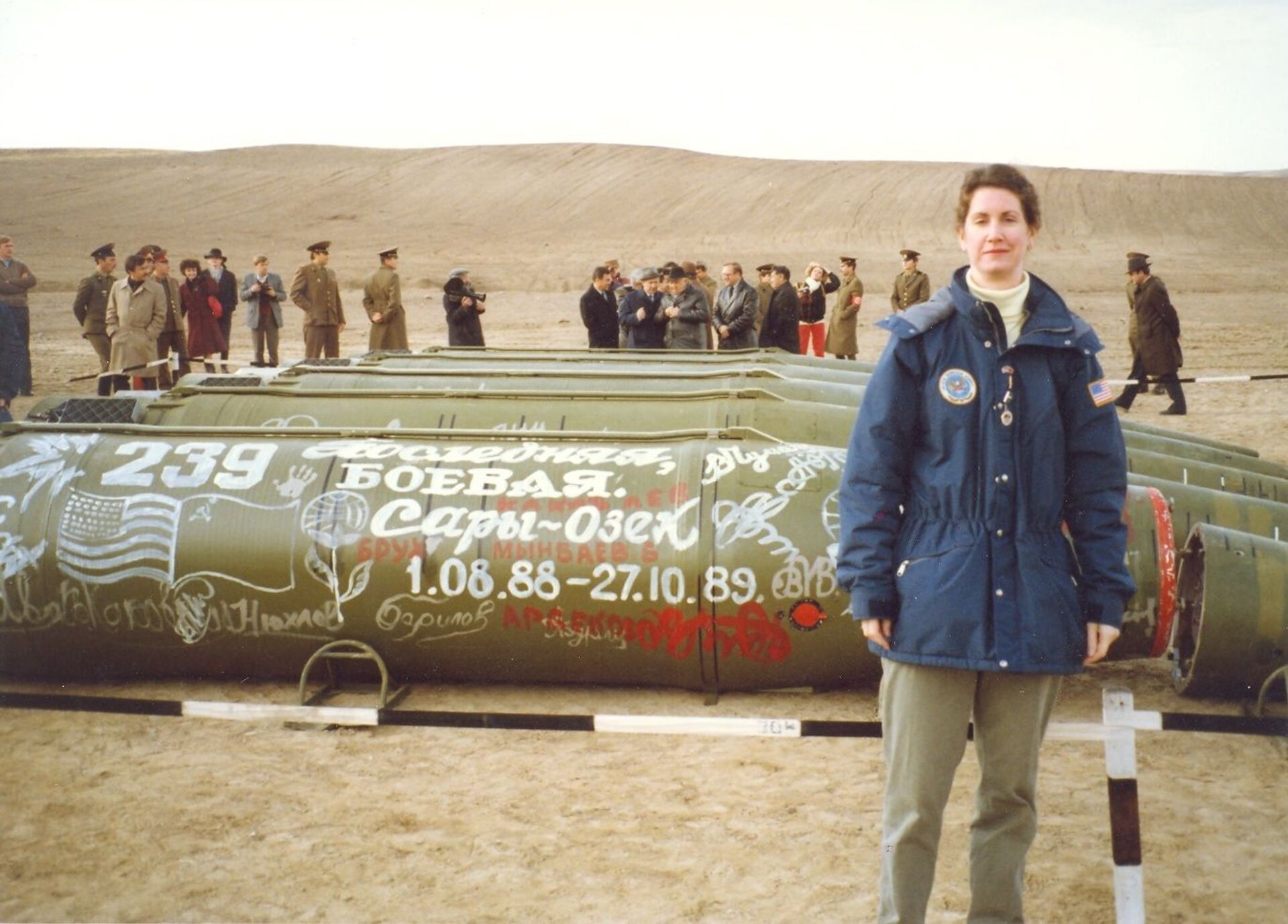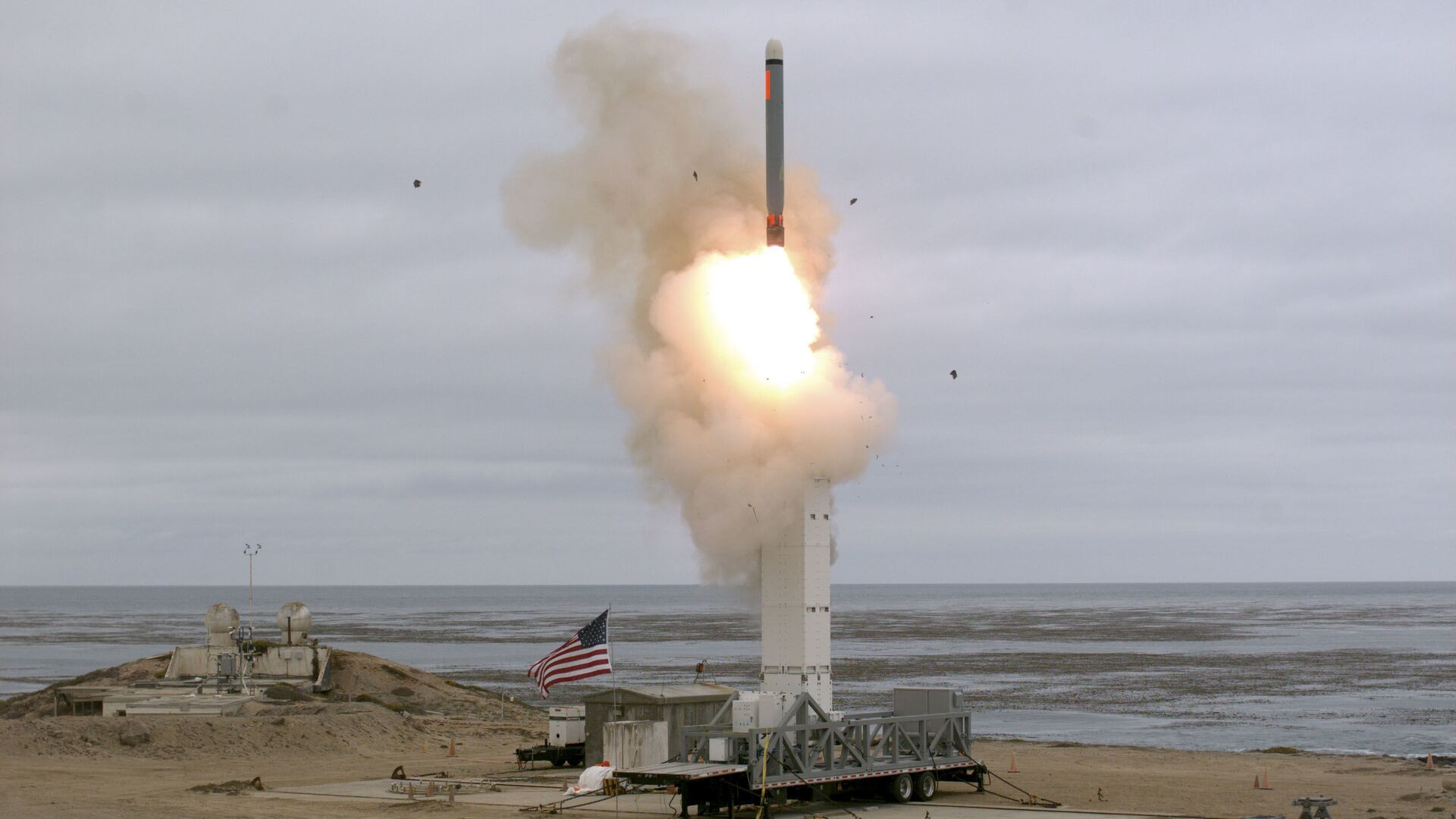NATO members are preparing to formally oppose the alliance's deployment of ground-based nuclear missiles in Europe following US President Joe Biden's meeting with fellow heads of state on June 14 in Brussels, Defense News reported on Saturday.
The outlet, citing an undisclosed US Senate aide and one European source, states that the position echoes previous comments made by Secretary-General Jens Stoltenberg and is set out in a draft communique to be released following the NATO summit.
According to the report, the decision is considered as a possible mechanism to de-escalate tensions with Russia and kick-start an arms control debate ahead of the June 16 US-Russia meeting in Geneva.
Should the ban on ground-based nuclear missiles in Europe become official, Biden, whose approval is required for the communiqué, would likely garner acclaim from arms control activists but pushback from nuclear weapons race advocates back home, as several US officials reportedly have expressed concerns over the possible move.
The deployment of new land-based missiles by NATO in Europe is only theoretical, according to the outlet. After a meeting of the alliance's Nuclear Planning Group last year, Stoltenberg stated that there were no plans to do so, though he did remark that several members planned to acquire additional air and missile defense systems.
The US unilaterally withdrew from the treaty in 2019, claiming that Russia violated the 1987 Intermediate-Range Nuclear Forces Treaty by deploying land-based 9М729, or SSC-8 in NATO classification, missiles. Russia denied the accusations, assuring that their actions were in full coordination with the treaty, and pointed out that the US itself had broken the agreement.

Russian President Vladimir Putin later announced a new initiative to resolve the situation with the growing tensions in Europe after the US withdrawal from the INF Treaty. In particular, he said that Moscow is voluntarily ready to refrain from deploying its 9M729 missiles on the European part of the Russian Federation, but subject to reciprocal steps from NATO.
He also suggested cross-inspections of the Aegis Ashore complexes with Mk-41 launchers at US and NATO bases in Europe and the 9M729 missiles located in Kaliningrad, Russia.
The INF Treaty was signed in December 1987 by then General Secretary of the USSR Mikhail Gorbachev and then-US President Ronald Reagan. According to the terms stipulated in the treaty, all land-based ballistic missiles, cruise missiles, and missile launchers with ranges of 500–1,000 kilometers (310–620 miles) (short medium-range) and 1,000–5,500 kilometers (620–3,420 miles) (long medium-range) were forbidden. However, the treaty did not touch upon the sea- or air-based missiles.
The upcoming NATO summit will take place in Brussels on June 14. The participants are expected to discuss Russia, China and climate change, among other issues.
Biden and British Prime Minister Boris Johnson issued a joint statement after their meeting on Thursday, in which they reiterated their commitment to effective arms control with an aim to have a world without nuclear weapons.
White House National Security Adviser Jake Sullivan said earlier that Putin and Biden are expected to discuss a wide range of bilateral issues related to strategic stability and arms control on June 16.

